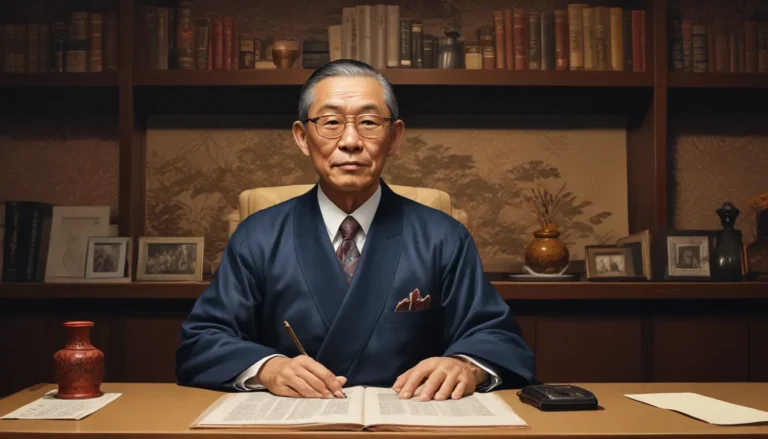The images in our articles may not match the content exactly. They are used to grab your attention, not to show the exact details in the text. The images complement the text but do not replace it.
Jean Froissart may not be a household name for everyone, but his impact on history is undeniable. As a 14th-century French chronicler, Froissart played a pivotal role in documenting the Hundred Years’ War and the lives of the nobility of his era. While delving into historical events may not seem glamorous at first, the tales that emerge from Froissart’s chronicles are truly captivating. Join us as we uncover 12 surprising facts about Froissart that reveal new dimensions of this influential historical figure. Get ready to be enthralled by the stories of a man who immortalized an era and continues to captivate historians and readers alike.
Unveiling the World of Jean Froissart
- Jean Froissart, a renowned French historian and poet during the 14th century, is best known for his work “Chronicles,” which offers detailed accounts of historical events and vivid descriptions that provide valuable insights into his time.
- Froissart traveled extensively throughout Europe, visiting countries like England, Scotland, France, and Italy. These travels enriched his understanding of different cultures and societies, shaping his unique perspective on the world.
- The “Chronicles” by Froissart are a monumental work covering over 1.5 million words. This extensive historical record sheds light on events like the Hundred Years’ War and the Black Death, offering a comprehensive view of the period.
- Froissart’s approach to chronicling events involved gathering eyewitness testimonies, adding authenticity and depth to his writings. His ability to incorporate firsthand accounts set him apart as a respected chronicler in the historical and literary realms.
The Storytelling Genius of Froissart
- Froissart was not just a chronicler but also a master storyteller. His narratives go beyond mere facts, creating engaging stories that bring historical events to life for readers.
- His work had a significant impact on the literary world, influencing the development of historical writing and literature. Many later writers drew inspiration from Froissart’s style and methodology, cementing his legacy as a cornerstone figure in medieval literature.
- During his time, Froissart’s chronicles were highly sought after by the nobility and ruling classes. His firsthand accounts and detailed descriptions were considered valuable resources for those interested in historical events and understanding the past.
- While Froissart composed his work in French, his chronicles were later translated into several languages, opening up his insights to a wider audience and allowing more people to appreciate his historical contributions.
Froissart’s Enduring Legacy
- Froissart’s chronicles shed light on the chivalric code of the medieval era, offering valuable insights into the conduct of knights, battles, and tournaments. His detailed descriptions provide a glimpse into the world of medieval chivalry.
- The “Chronicles” gained favor with prominent rulers like King Edward III of England and King Charles V of France, who recognized the historical significance of Froissart’s work. His writings were revered for their detailed accounts and unique perspectives.
- Froissart’s approach to chronicling events, including his emphasis on personalized accounts and interviewing eyewitnesses, influenced the field of historiography. His methods shaped the study of history as a discipline.
- Today, Froissart’s “Chronicles” remain a valuable resource for historians, scholars, and enthusiasts interested in the medieval period. His enduring significance in the academic world ensures that his legacy continues to be celebrated and studied.
A Journey Through Froissart’s World
Jean Froissart’s legacy transcends time, captivating readers with his mesmerizing tales of a bygone era. His dedication to documenting historical events and his unique storytelling abilities have left an indelible mark on the literary and historical world. Whether you are a history enthusiast or simply curious about the medieval period, exploring the life and works of Froissart is sure to be an enlightening and enchanting journey.
Discover More with Froissart FAQs
- Who was Froissart? Jean Froissart was a 14th-century French chronicler and poet known for his extensive works documenting the events of the Hundred Years’ War and the medieval period.
- What were his major works? Froissart’s major works include the Chronicles of Froissart, which chronicle the events of the Hundred Years’ War, as well as various poems and ballads.
- Why is Froissart significant? Froissart is significant because his works offer valuable insights into the medieval period and the events of the Hundred Years’ War, providing a unique perspective on the era.
- How did Froissart gather information for his chronicles? Froissart traveled extensively and conducted interviews with key figures involved in the events he documented, relying on firsthand accounts and eyewitness testimonies.
- What makes Froissart’s writings unique? Froissart’s keen observational skills and ability to bring characters and events to life through vivid descriptions and personal narratives set his works apart.
- Did Froissart influence later writers? Yes, Froissart’s writing style and approach to chronicling historical events inspired many later writers, including Geoffrey Chaucer, who drew from Froissart’s storytelling techniques.
As you journey through the enchanting tales of Jean Froissart, you’ll find yourself engrossed in a world where history comes alive through the power of storytelling. Join us in celebrating the enduring legacy of Froissart and embark on a quest for knowledge and enlightenment through the pages of his illustrious works.






